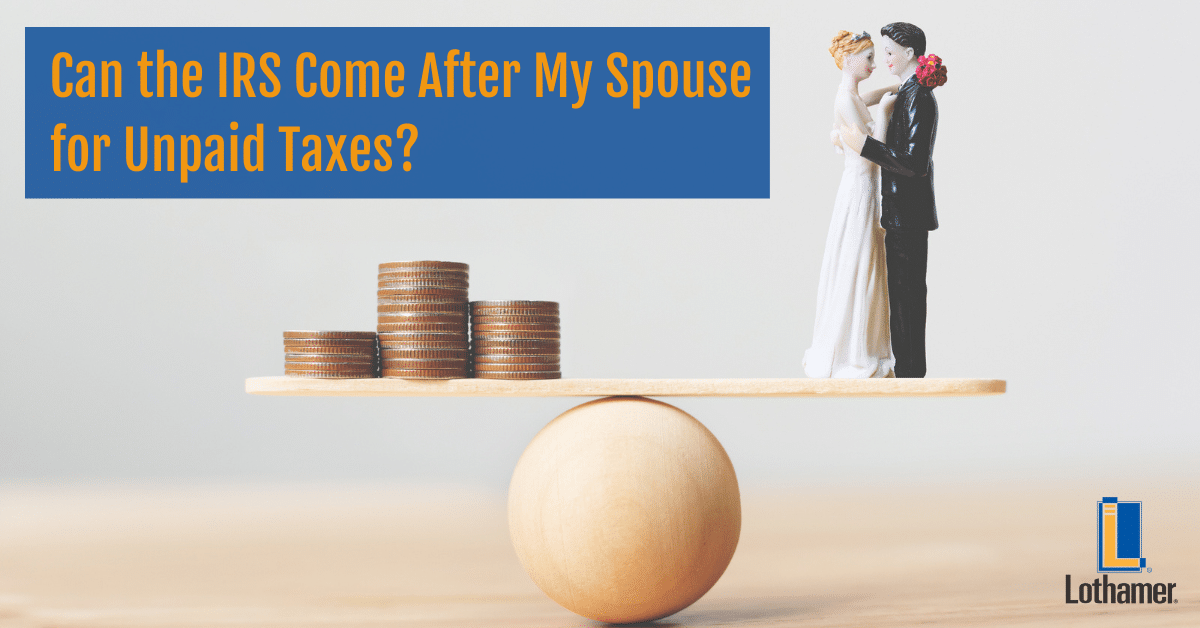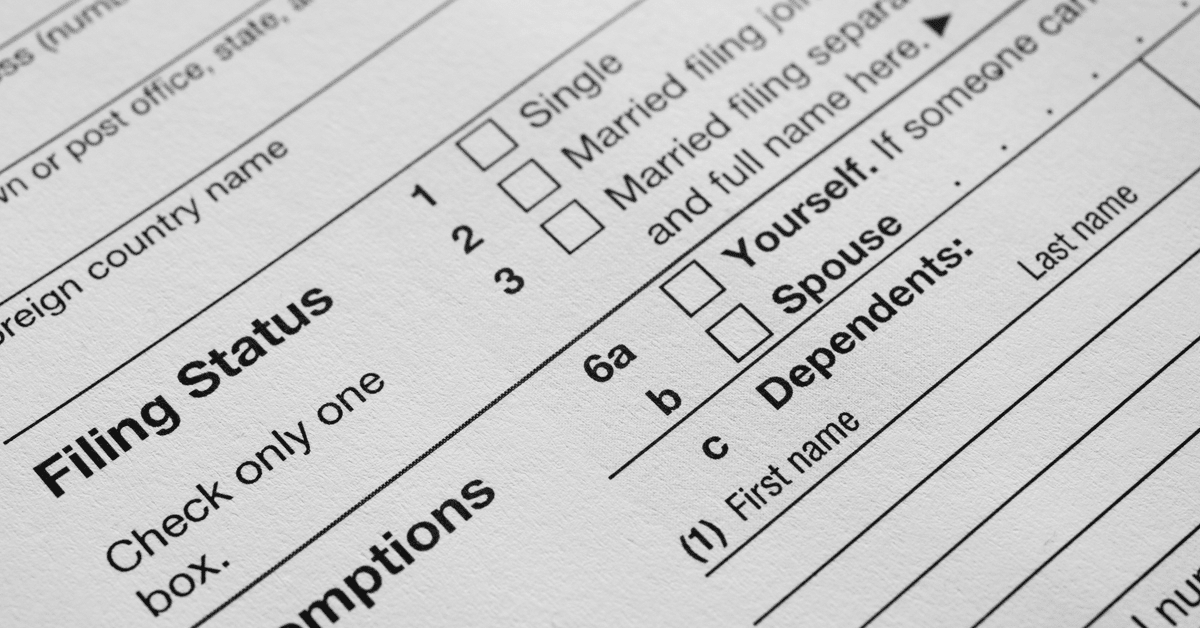
Married couples promise to stand by each other through every happy moment or hardship in life, but massive back tax debt or an IRS audit might be the exception to the rule. If one or the other person in your marriage has a tax problem, you may find yourself asking, “Am I responsible for my spouse’s debt?”
It’s all too common for one spouse to suffer penalties because they decided against filing separate taxes when married. For individuals with a large tax debt, choosing married filing jointly vs separately is an invitation for the IRS to go after their spouse.
Thankfully, there are ways for an aggrieved spouse to seek redressal if their partner’s back taxes have affected their annual tax returns.
Choosing to file taxes jointly upon marriage certainly has its advantages. Still, if one spouse has an unpaid tax debt, the couple may be better off filing their taxes separately. When issues arise due to joint filing, it’s vital to seek the help of experts.
Tax resolution companies like Lothamer employ Enrolled Agents (EAs) who can help married couples deal with the IRS in case of an audit.
Am I Responsible for My Spouse’s Debt? A Lothamer Guide
We understand that finances in marriages can be tricky waters to navigate. If you’d like advice on when to file separate taxes when married or know you or your spouse are facing a major back tax problem, call or text (877) 955-9020 today to get real advice fast.
How Unpaid Taxes Can Affect Your Spouse
It’s important to be open and honest about your tax status—this applies to personal relationships and IRS filings.
Owing the state money or submitting erroneous tax returns can attract penalties not only for you but also for your spouse. When you file taxes jointly as a married couple, both of you are responsible for the dues. In plain English, that means the IRS can collect the taxes owed from both spouses on the joint claim.
How the IRS Can Go After Your Spouse
The IRS can take several actions against both you and your spouse, even if just one of you has unpaid taxes.
These actions include:
- Garnishing Wages: The IRS can issue a wage garnishment or levy against both spouses if they are employed. This means a portion of their wages can be withheld to satisfy the tax debt.
- Seizing Assets: The IRS can seize assets or property owned by either spouse to pay off the tax debt. The extent to which they can do this may vary depending on state laws and the specific circumstances.
- Levying Bank Accounts: The IRS can levy joint bank accounts or financial assets that belong to either spouse to collect the unpaid taxes.
- Applying Refunds: Any future tax refunds, including joint refunds, may be applied to the outstanding tax debt.
- Pursuing Legal Action: In extreme cases, the IRS may take legal action against both spouses to collect the tax debt.
How to Seek Relief when Affected by Your Spouse’s Back Taxes
When married couples file their taxes jointly, there is a possibility that their refund can be affected by their partner’s filings. In fact, offsetting one spouse’s unpaid taxes against the other one’s tax returns is the most common method the IRS uses to settle tax debt.
For cases where one spouse does not wish to be held responsible for the tax delinquency of their partner, they can seek relief from the IRS using the following methods.
Innocent Spouse Relief
An innocent spouse claim can be filed when one spouse believes they should not be held responsible for their partner’s tax liabilities. Innocent spouse relief may be sought if you believe you were unaware of or not involved in the actions that led to the tax debt. The following conditions must be met to claim innocent spouse relief:
- All erroneous items on the joint return are solely attributable to your spouse.
- You can prove you have been unaware of your spouse’s tax understatements.
- It is unfair to hold you responsible for the tax understatements after considering the evidence.
Injured Spouse Claim
Injured spouse relief is used to protect a portion of a joint tax refund when the refund could be offset or applied to financial obligations, such as unpaid child support, spousal support, federal student loans, or other federal debts of one of the spouses. It doesn’t seek to relieve a spouse of tax debt but to allocate a portion of the refund to the other spouse who is not responsible for the debt.
To qualify for Injured Spouse Allocation, the spouse seeking protection must have had income, deductions, or credits on the joint tax return and not be responsible for the financial obligations that could lead to an offset of the refund.
Professional Tax Advice for Married Couples Facing the IRS
Whether you know that you may soon be hearing from the IRS or they’re already taking action against you, Lothamer Tax Resolution can help. As a team, our highly experienced Enrolled Agents come from CPA and tax professional backgrounds, meaning we’re doubly equipped to help you navigate the minefield of federal and state tax authorities.
Our experts can help you determine the best course of action for resolving your tax problem, whether that be claiming innocent spouse relief or pursuing another option, like Offer-in-Compromise. Then, we’ll fight on your behalf, using our knowledge of tax laws and how to deal with the IRS to your advantage.
With offices throughout the Midwest, we can evaluate each case independently to find the best solution for any tax problems you may face today and in the future. We’ve seen and handled it all, from new marriages to complex divorces. When you need immediate tax help, make Lothamer your first call and stop the IRS from taking further action against you today!
Get Back Tax Relief in Michigan, Wisconsin, Illinois, Ohio, & Kentucky
We’re the Midwest’s trusted tax resolution firm because we make every case personal. Our team takes action within 24 hours of taking on your case, calling the IRS directly to request a pause on any liens, garnishments, or other pursuits against you. With full transparency and frequent communication with your case manager, you’ll always know where you stand. Find tax debt help near you or call (877) 955-9020 now!
"*" indicates required fields




